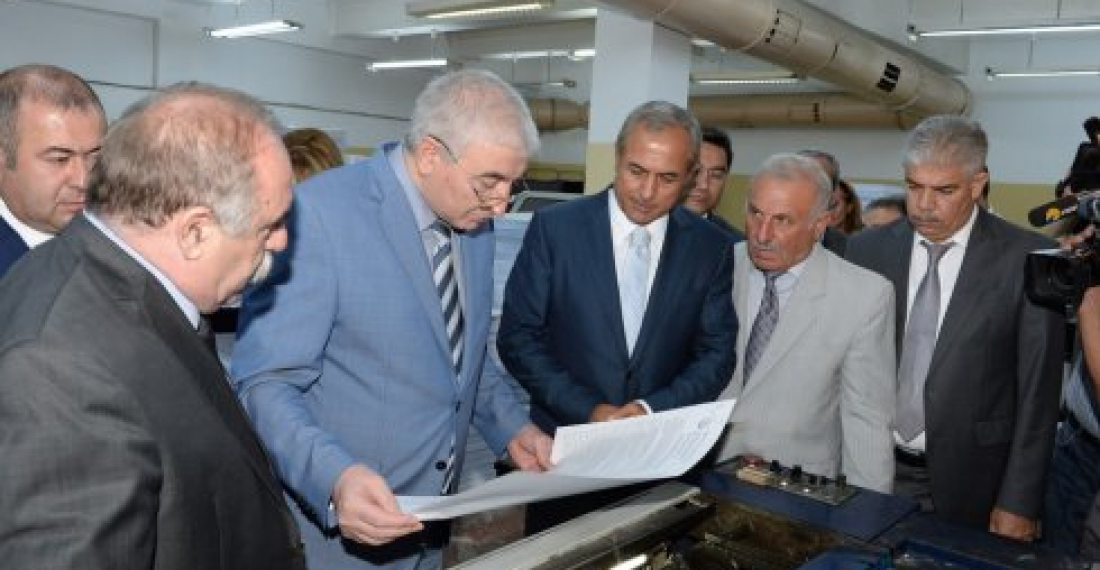Preparations are well under way for a national referendum in Azerbaijan, scheduled for 26 September. the referendum, initiated by the government, seeks popular approval for significant constitutional changes.
The process for printing 5,280,924 ballot papers has started. It will be done at the printing press of the Azerbaijani Parliament. The Chairman of the Central Elections Commission of Azerbaijan, Mazahir Panahov, visited the printing press to watch the process a few days ago.
Speaking at a seminar organised by the CEC yesterday (Thursday, 18 August), Panahov said that "The referendum is aimed at protecting stability in Azerbaijan. Azerbaijan is developing rapidly and people's living standards are improving. We held elections at the highest standards. We must hold this referendum at a high level too."
The theme was echoed by a number of goverrnment speakers at the event.
"Democracy has a begining, but not an end"
Ziyafat Asgarov, first vice-speaker of Azerbaijani parliament emphasised that the referendum is part of a longer term democratic process in the country, according to a report carried by Trend News Agency
"Azerbaijan's National Leader Heydar Aliyev said that democracy has a beginning, but has no an end. In order to reach the highest level in the construction of a legal state, we have to carry out these changes," Asgarov noted."The referendum meets the people's will and we have to hold it," he added.
He also said the issues raised on the referendum reflect the people's will. Each referendum is a political and economic barometer of a society, Asgarov noted."We must take this step within the state building process," he added.
A number of initiative groups are forming ahead of the referendum to campaign.
Activists arrested ahead of the referendum campaign; outrage in the international community
There has been strong criticism of the Azerbaijani government ahead of the referendum. Many civil rights groups have condemned the arrest over the last few days on a number of political figures and activists Many link the arrests directly to the referendum.
There has been outrage in the international community following the arrest of the Executive Secretary of the opposition "REAL" Movement, Natig Jafarli, as well as the arrests of other activists.
British Minister for Europe and the Americas, Sir Alan Duncan, in a statement said called on Azerbaijan to abide by its international commitments, and to improve its record, on human rights and the rule of law. A similar call came form the United States department of State, Deputy Spokesperson Mark Toner urged the Azerbaijani government "to release these and other activists incarcerated in connection with exercising their fundamental freedoms, to respect the fundamental freedoms of its citizens."
"We urge the Azerbaijani government to allow an open and public dialogue about the direction of the country, particularly in the run-up to the planned September 26 constitutional amendment referendum. We also urge the government to submit the constitutional amendments for a joint Venice Commission and ODIHR Opinion," Mark Toner said in his statement.
Starting Monday, 22 August, commonspace.eu will be running daily coverage of the Azerbaijan referendum and the events around it with news and comments from Azerbaijan, as well as international reaction.
source: commonspace.eu with agencies:
photo: The Chairman of the Central Elections Commission of Azerbaijan supervises the printing of ballot papers for the 26 September constitutional referendum. (picture courtesy of the Press Service of the Azerbaijan Central Elections Commission).






